Stem Cell
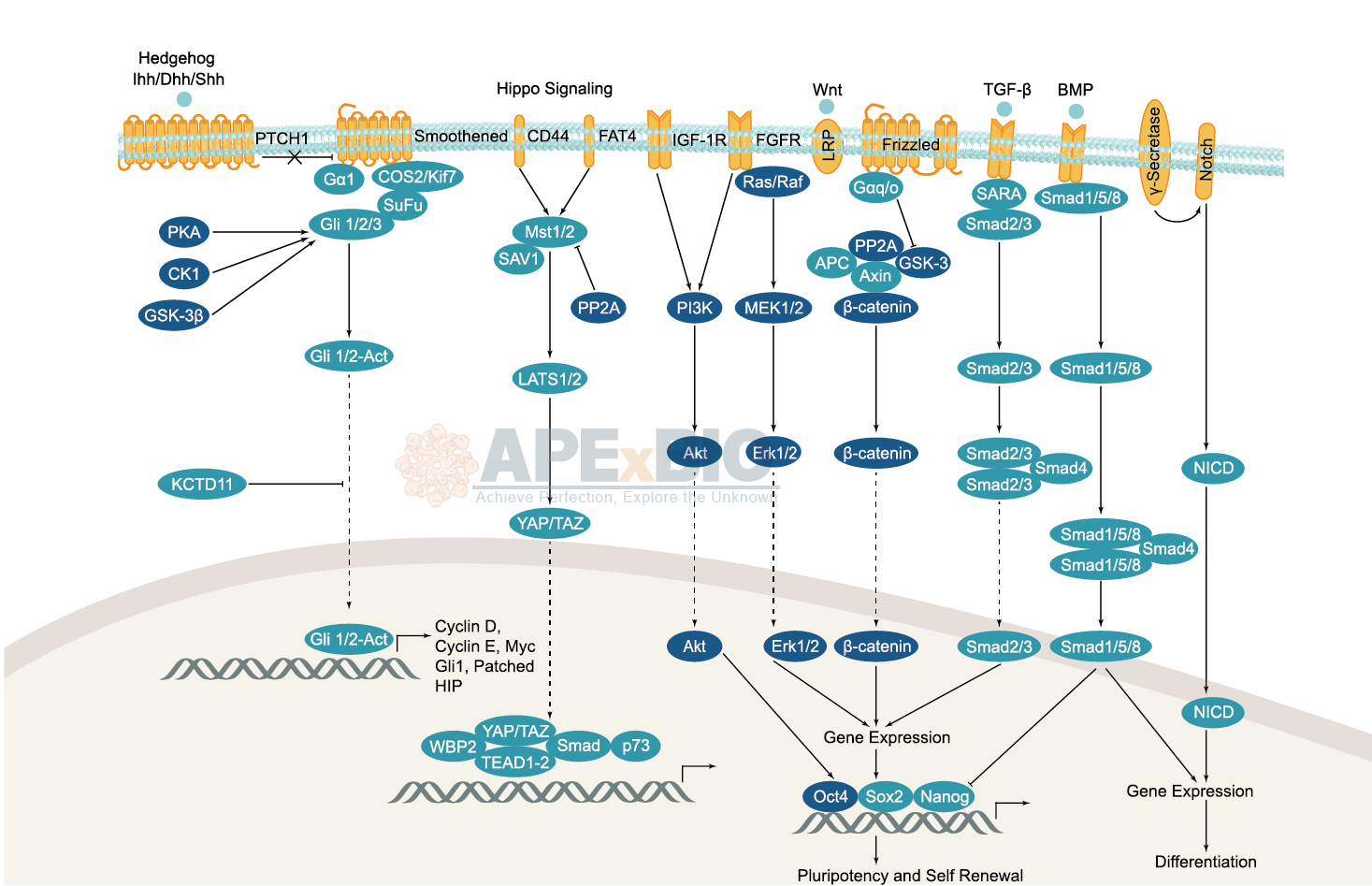

In ESC, BMP/TGF-β signaling pathway plays a key role in maintaining pluripotency and self-renewal. It signals through Smad proteins, and the FGF signaling pathway, which activates the MAPK and Akt pathways. The Wnt signaling pathway also promotes pluripotency. OCT-4, SOX2, and NANOG are three main transcription factors that are expressed and activated by these pathways. Induced pluripotent stem cells (iPSC) are pluripotent cells that can be generated from differentiated cells with forced expression of specific reprogramming factors. Both ESC and iPSC can be induced to develop into distinct cell types that associated with three primary germ layers: ectoderm, mesoderm and endoderm. Signaling pathways that control the development of these cell lineages, including BMP/TGF-β, Notch, Wnt/β-catenin, Hedgehog and Hippo pathways, which regulate cell division, growth and differentiation. Defects in stem cell signaling are related to developmental disorders and cancer.
-
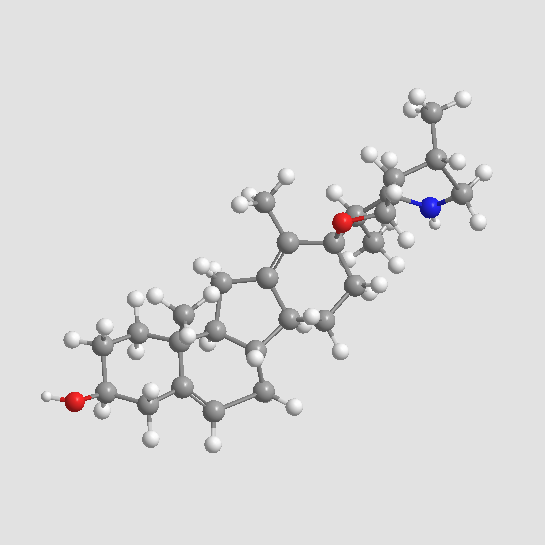 A8340 Cyclopamine7 CitationTarget: SmoothenedSummary: Hedgehog (Hh) signaling Inhibitor
A8340 Cyclopamine7 CitationTarget: SmoothenedSummary: Hedgehog (Hh) signaling Inhibitor -
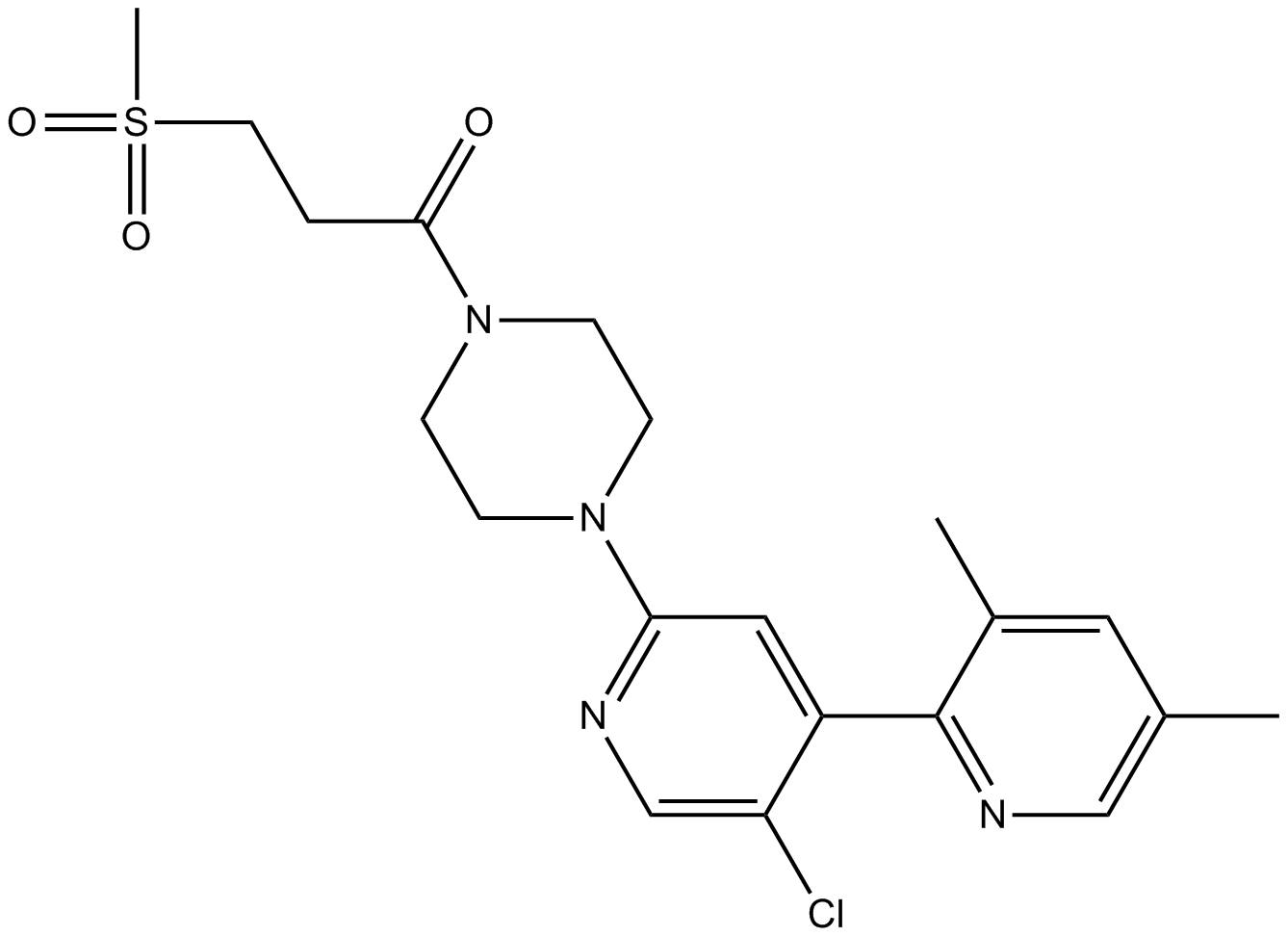 A8500 PF-5274857Summary: Smo antagonist,potent and selective
A8500 PF-5274857Summary: Smo antagonist,potent and selective -
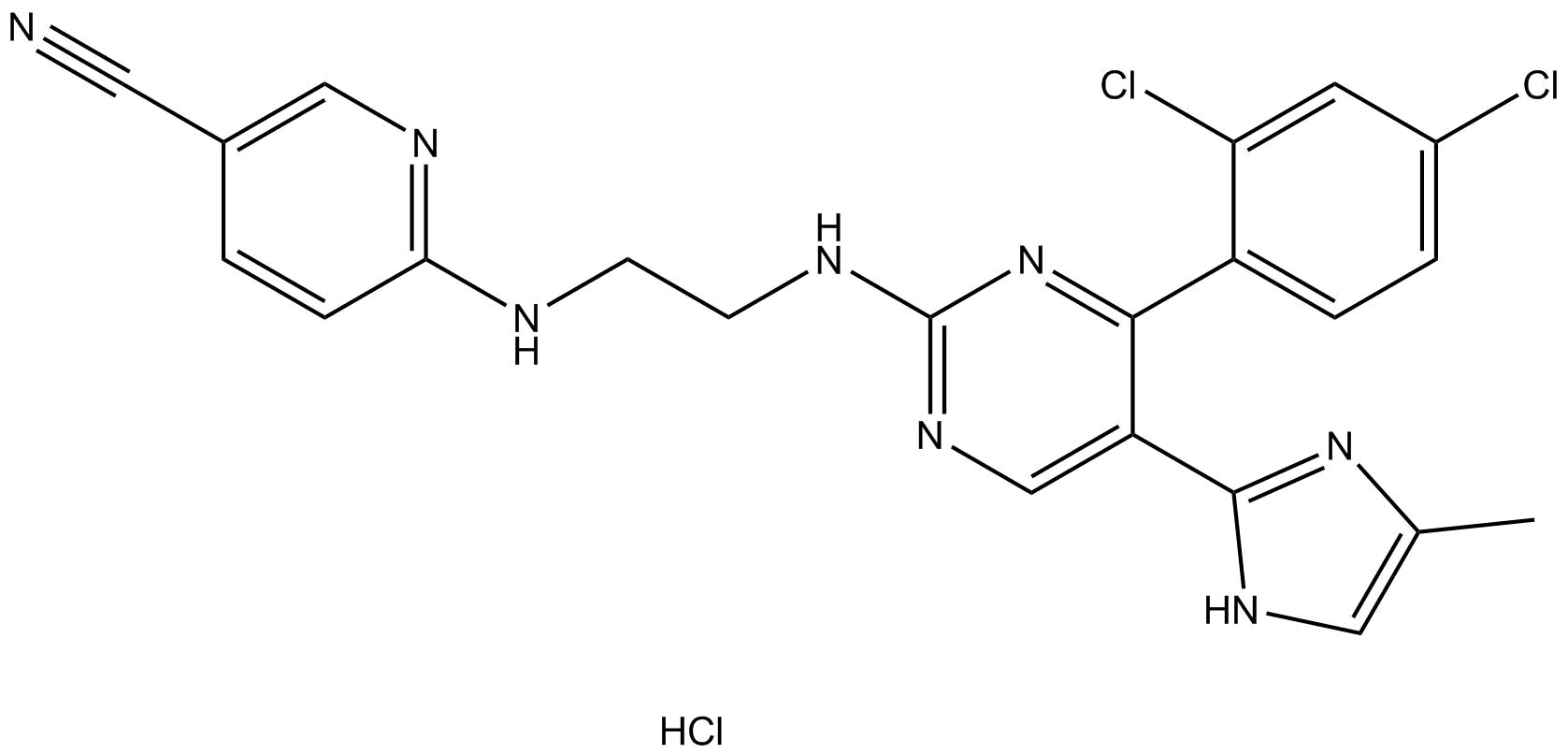 A8396 CHIR-99021 (CT99021) HClTarget: GSK-3Summary: GSK-3α/β inhibitor
A8396 CHIR-99021 (CT99021) HClTarget: GSK-3Summary: GSK-3α/β inhibitor -
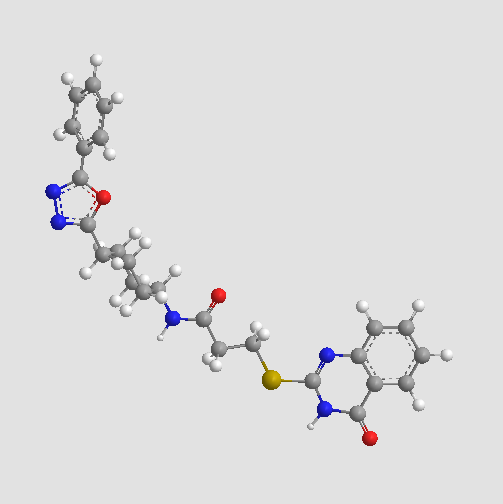 A8600 Tankyrase Inhibitors (TNKS) 22Summary: Tankyrase inhibitor
A8600 Tankyrase Inhibitors (TNKS) 22Summary: Tankyrase inhibitor -
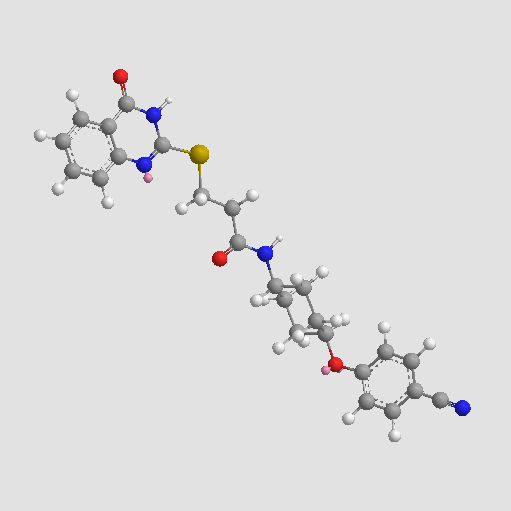 A8601 Tankyrase Inhibitors (TNKS) 49Target: TankyrasesSummary: Tankyrase inhibitor
A8601 Tankyrase Inhibitors (TNKS) 49Target: TankyrasesSummary: Tankyrase inhibitor -
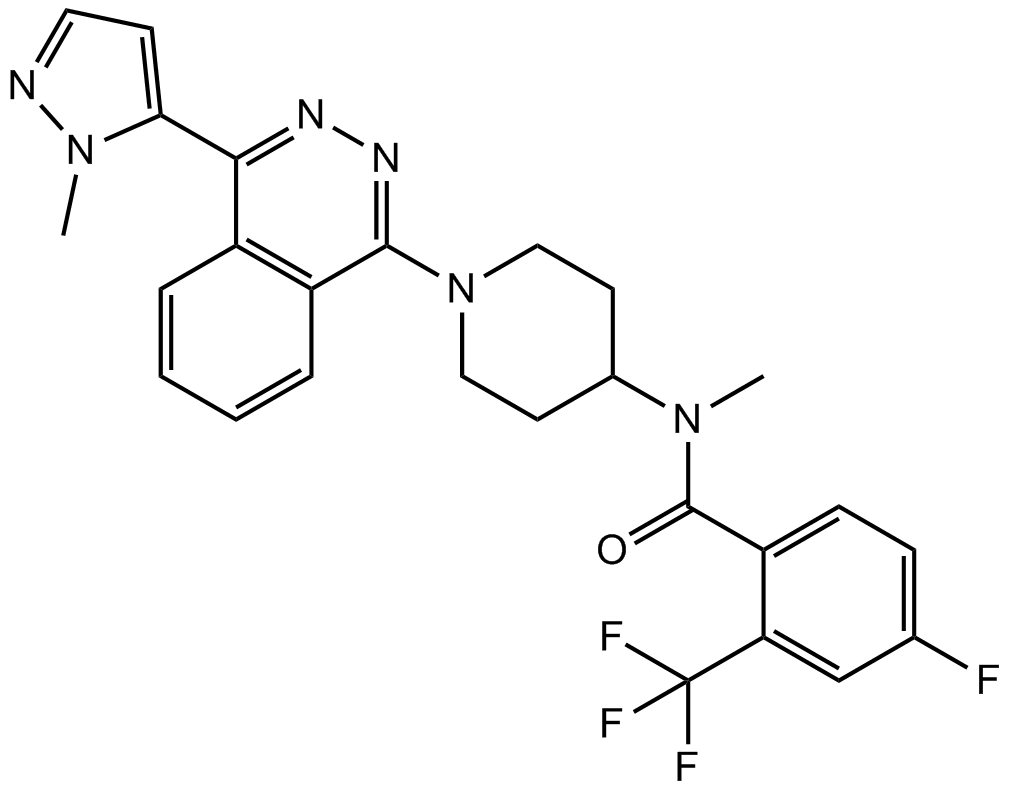 A8651 LY2940680Target: Smoothened receptorSummary: Hedgehog/SMO antagonist,inhibits Hh signaling
A8651 LY2940680Target: Smoothened receptorSummary: Hedgehog/SMO antagonist,inhibits Hh signaling -
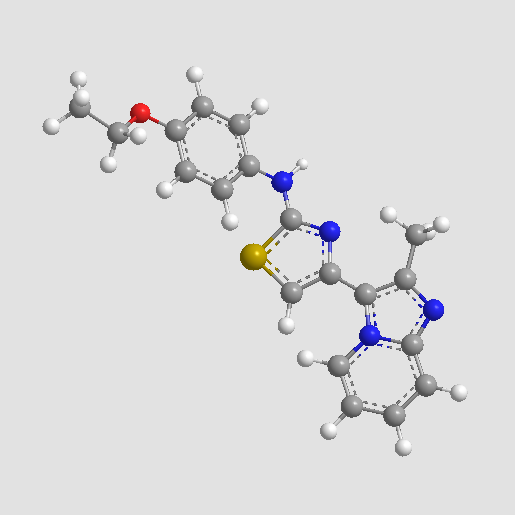 A8652 JK 184Summary: Hh signaling inhibitor
A8652 JK 184Summary: Hh signaling inhibitor -
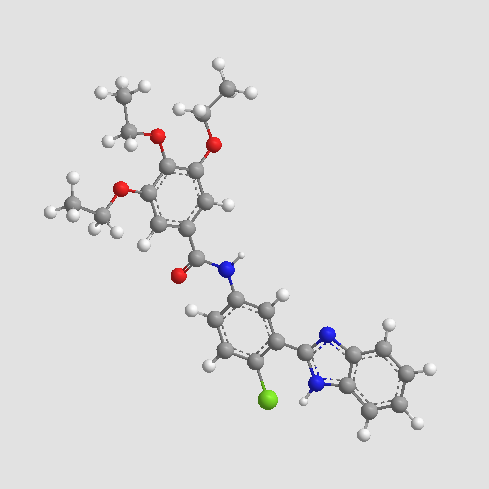 A8653 SANT-2Summary: Hedgehog signaling inhibitor
A8653 SANT-2Summary: Hedgehog signaling inhibitor -
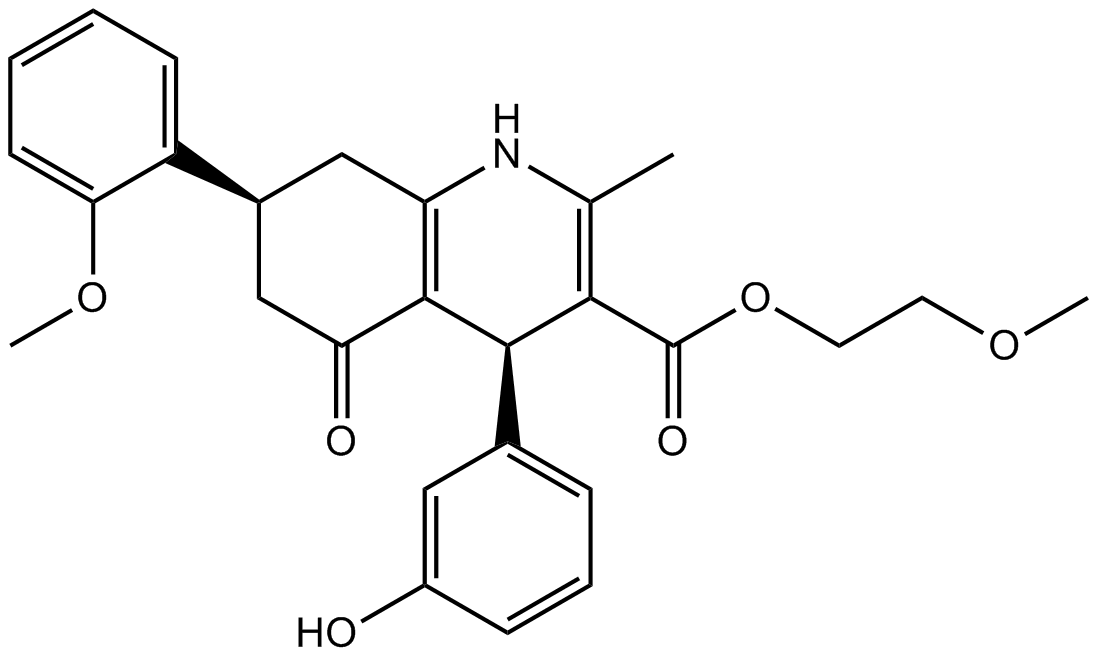 A8654 HPI 1Summary: Hh signaling inhibitor
A8654 HPI 1Summary: Hh signaling inhibitor -
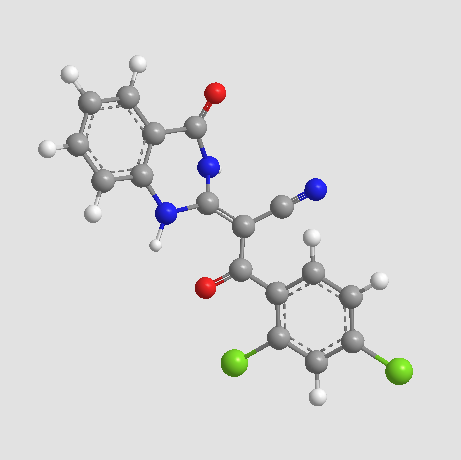 A8655 Ciliobrevin ASummary: Hh pathway antagonist
A8655 Ciliobrevin ASummary: Hh pathway antagonist


